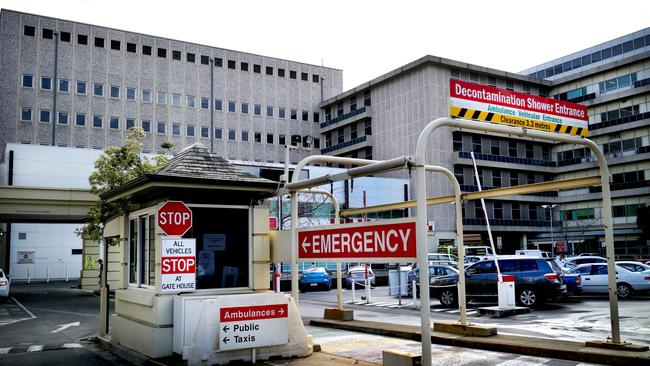‘Bed blocks’ at Royal Adelaide and Queen Elizabeth Hospitals putting patient lives at risk, Emergency Department doctors say
FRONTLINE emergency department doctors warn lives are at risk from “bed blocks” as lack of beds continue to cause patient logjams.
SA News
Don't miss out on the headlines from SA News. Followed categories will be added to My News.
- Health chief: Transforming Health ‘a house of cards’
- Dr Chris Zeitz ’supports Transforming Health despite criticism’
- Dozens of hospital beds to be closed at RAH and QEH
FRONTLINE emergency department doctors warn lives are at risk from “bed blocks” as lack of beds continue to cause patient logjams.
The warning comes despite the State Government’s belated backflip on its plan to close the Royal Adelaide Hospital’s S-7 ward saying it will open up to 20 beds when needed — of the 55 beds it plans to close in the RAH and the Queen Elizabeth Hospital.
SA Health officials say these are not “closures” as beds will open at the Lyell McEwin Hospital, however ED specialists says hospitals in Central Adelaide — the RAH and QEH — are struggling to cope.
At 10.30am on Monday, the combined hospitals had 18 patients who had been admitted but were still waiting for beds, including three waiting for more than 24 hours.
Such patients are kept in corridors and in some cases at the QEH spend the night sitting in the waiting room.
Australasian College for Emergency Medicine SA spokesman Dr Tom Soulsby urged the State Government to exercise caution in relocating wards.

He said recent talk about relocating wards from the RAH and the QEH “places staff in EDs under further unnecessary pressure”.
“While we support efforts to develop better 24/7 services in the north, removing beds in central Adelaide will have a profound impact on patient safety at the RAH and QEH,” he said.
“On most mornings we have an average of between 15 to 20 patients waiting for a bed in a ward. Once a patient is seen in an emergency department they need to be transferred as efficiently as possible to their next point of care — properly resourced wards are an integral part.”
Dr Soulsby welcomed the Government’s focus on health reforms but stressed it is crucial ED doctors be consulted.
Access block can be caused by factors including a surge of patients in a short time and patients who need specific rooms such as prisoners or with infectious diseases.
College president Professor Tony Lawler said officials need to unclog the system.
“Access block which results in ... longer hospital stays, increased errors in care and a greater likelihood of dying while in hospital, poses the largest threat to patients in health reforms across the country,” he said. “Quite simply, access block puts the lives of patients at risk.”
Central Adelaide Local Health Network acting chief executive Len Richards said improving patients flow is a priority.
“Recent strategies put in place including empowering ED doctors to admit patients quicker to a bed and focusing on discharging patients sooner,” he said.
“While we have already seen some good progress, we continue to meet daily with our clinicians to identify any access blockages and work to solve them.”



